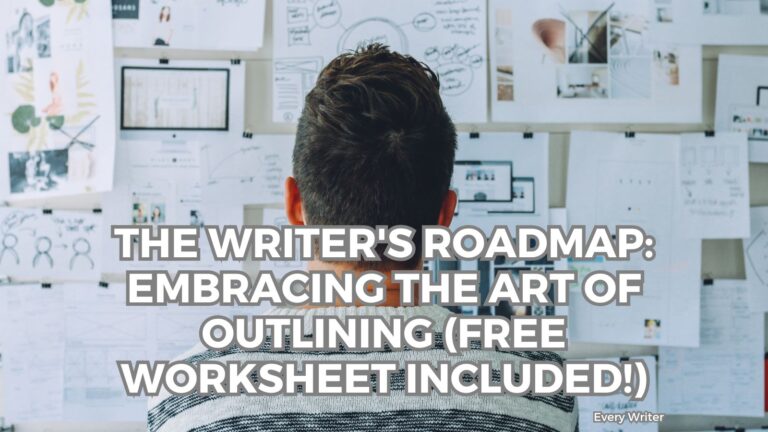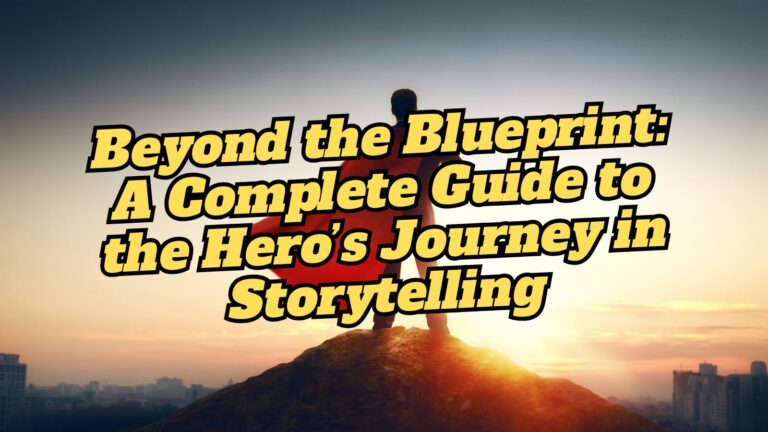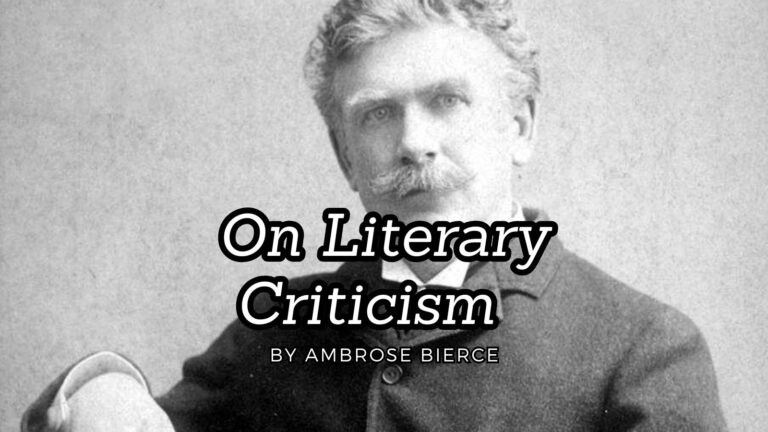
Being A Writer in Silicon Valley
by Vanessa Wang
When I first arrived in Silicon Valley two years ago, I had very few expectations for this place. My husband, a computer programmer, had dragged me here because “it is the epicenter of the world’s most cutting-edge technology and future-changing companies.”
So what, I thought.
I was unprepared for how quickly my excitement caught, how, sitting in the passenger seat as we cruised along highway 101 and 237, I would point my finger at company logos I recognized and shout out their names—Apple, Facebook, Netflix, Twitter, Google, LinkedIn. These were companies that were famous, products which I used every day. I’ve never been into technology—I’m the kind of person who tirelessly chooses “no” again and again each time my phone asks if I want a software upgrade—but I experienced the same kind of high one has when spotting movie stars on Hollywood Boulevard.
Silicon Valley took me by surprise. People here were driven, single-minded in a way I, with my experience living in many cities around the globe, including Taipei, Tokyo, Madrid, and Washington DC, had never before encountered. It was almost as if the Valley attracted a specific breed of people—people I admired and feared, but above all, could not understand. Striking up a conversation with a fellow soaker in the community hot tub, I learned that he had founded not one or two, but three start-up companies in the past four years. I accompanied my husband to tech meet-ups for the free pizza and listened to people talk about their day-to-day activities: work full-time during the day, deliver speeches at Women in Tech events in the evenings, and develop mobile apps with business partners in Tahoe ski resorts on the weekends.
I grew up in Taipei, where people work overtime on a regular basis, and yawning, slouching men in suits are just part of the city landscape, so I thought I knew all about the price of progressive big cities. But Silicon Valley was a whole different animal: people here were actually excited about working all day long, and on weekends, too.
I pieced together an explanation to Silicon Valley’s industriousness from many places. I found part of the answer when I visited the Google campus and witnessed their unlimited amount of free food in 30 specialty cafes, free haircuts, free massages, and free doctor’s appointments. These lavish perks not only allowed employees to focus more of their time on work, but more importantly, it created an atmosphere of abundance. The Valley, I realized, paints a picture of wealth wherever I look, not least in the stories people tell one another: that friend who became a millionaire overnight when the private start-up he worked for went public, that neighbor who developed a messaging app and sold it to Facebook for an astronomical figure, that co-worker who bought a house fifteen years ago and watched its value go up tenfold. These stories are frequent enough, happening to people just one degree of separation from you on a monthly, if not weekly, basis, to feel not simply anecdotal. People in Silicon Valley feed off one another on these success examples, I concluded. This is why thousands of people move here from all over the world each year, and this is why people juggle multiple jobs and work 90-hours per week, eyes glimmering.
The first few months I worked here, I had unbounded energy. The Valley’s fast-paced, competitive vibe had rubbed off on me, and I, too, wanted to do everything. Driving to work took almost two hours, but each day, I woke up before the alarm clock rang and jumped out of bed. Once I left home at five AM, so I could make the team breakfast at 6:45. The stars accompanied me throughout my drive, and all I felt was how good it was to be alive. I didn’t recognize this person I’d become, but I kind of liked her; I was proud of her, I think. When I got home from my technical writer job at seven each night, I worked on my side business as an editor and refined my website to develop my personal brand. Never mind that I was a writer while everyone else around me was an engineer; never mind that all I wanted in the whole world was to make just enough money as a freelancer so I could quit my day job and write a book—people succeeded here, and so would I.
The sheer speed of things in Silicon Valley entranced me. For everything, there was a clear formula to success. My husband attended a “coding boot camp,” an intensive training program in San Francisco that recruited people with the most basic programming skills—people who previously were accountants, musicians, waiters, and, in my husband’s case, a self-taught coder with a background in Environmental Science—and made them into Silicon Valley software engineers, doubling or tripling their salary. Completing the program took a total of just three months, and their success rate was 99%. Every one and a half months the boot camp recruited seventy people, and every one and a half months, without fault, they churned out seventy people who would end up in a Bay Area software company.
In a writing career, it takes months, sometimes years to hear back from a literary magazine, just to be notified that a story was rejected or even that the magazine has gone out of print. Is it any wonder that Silicon Valley became a welcome distraction to my stagnant writing career? If I can’t write three novels in four years, I thought, maybe I could start three companies in four years like so many people seem to be doing here. One becomes hopeful of the wrong dreams.
***
Brian and I moved seven times in 2015, making our mark all around the Bay Area.
We had moved out here from Maryland, quitting our jobs and selling our furniture, without any clear-cut plan except that Brian was going to attend the coding boot camp and find a job afterwards. Back then I was exceedingly distrustful of the 99% success rate the boot camp promised on its website, and in truth, I think so was Brian, but we weren’t making enough money to cover our expenses back in Maryland, so we decided to give the Bay Area a chance.
Our first living quarter was a room in an indigo house we found on Airbnb at the edge of San Francisco. We chose that location because it was a reasonable distance from Brian’s coding boot camp, but relatively cheap in terms of San Francisco rent. We paid seventeen hundred dollars a month. We cohabited the three-story home with a Filipino family of four, three dogs, and a long-term tenant with whom we shared a bathroom. To find parking space, we often circled the neighborhood for half an hour, and ended up as far as five streets away.
Each day, Brian left for his boot camp at 7:15, before I woke up. He’d return around ten, and usually went to sleep soon after. This was his schedule six days a week, which meant I was alone most of the time.
I loved it.
There was a coherent rhythm to my days, with Brian clocking in and out of my life, and plenty of room for improvisation in what I did in the time between, since I hadn’t yet found a job. Once in a while I wrote at the tiny round table wedged between our bed and a bay window, but most days I carried my laptop in a messenger bag and went out to explore.
I explored the Mission district, Russian Hills, Haight-Ashbury, Sunset. I visited the neighborhood Filipino supermarket so many times I memorized how much the apples and pears cost, even though I never bought any. I discovered a mom and pop shop selling Chinese dim sum, where I could get a good meal with a couple of quarters. I collected library cards from all over the city. I hopped on Muni buses and got off whenever I saw a corner of the city I did not yet recognize. I sat in as a model for a friend in a bald cap cosmetics class. I attended writer meet-ups in coffee shops and read my stories out loud. I also searched for jobs and went to a few interviews.
There was time to be bored. There was time to get lost. There was time to write down my thoughts and stay with them for more than a while. Looking back, it was one of the happiest periods of my life because I was living at my own pace, and I alone decided what details were worth slowing down for.
When the boot camp was over, Brian started looking for a job. Since we didn’t know how long the search would take—the boot camp had promised a 99% job placement rate, but didn’t say anything about how long it would take to happen—we crashed with family and friends or rented places with very short leases: San Jose, Santa Clara, Cupertino, Mountain View, San Mateo, and then Mountain View again. We lived anywhere so long as there was internet and cell phone access so Brian could conduct his four or five interviews per day. Silicon Valley really was the land of opportunities for software engineers; Brian’s email inbox was filled with HR requests to “have a quick chat.” But landing a job also wasn’t as easy as the boot camp’s website promised. There was, as it turned out, no shortage of entry-level computer programmers in the Bay Area, but rather a great demand for senior-level engineers. Learning about this at this point in our lives was not helpful.
It was a time of paramount uncertainty, and as I procrastinated on my own job search, I found myself researching the gold rush in 1849—because that was why we were here, wasn’t it—to find money? Somewhere in the back of my mind, I recalled Brian mentioning something about dreams and entrepreneurship, but with both of us unemployed, the focus became loud and clear: this was about paying the rent. We had uprooted ourselves from our once stable life and journeyed all the way here, just as gold-seekers did in the nineteenth century. Like them, we had spent a big chunk of our savings on the equivalent of picks, shovels, and pans—the mining supplies, and still we had not uncovered a speck of gold.
As I emailed out resume after resume to established companies and start-ups alike, I thought about timing, about the early arrivals versus the late-comers in the gold rush. Those who came in the beginning found gold everywhere: in streams and among onion bulbs, and everyone profited. Those who arrived late, though, had to develop complicated techniques of gold-recovery, and so only large mining companies thrived, while everyone else became wage labor. I thought about Levi Strauss and Samuel Brannan, businessmen who had made the most money in 1849 by “mining the miners,” selling clothes and tools to the gold-seekers. Perhaps that was what we should have been doing: making money off of the other techies by providing them food and lodging.
We were nomads, drifting from one Silicon Valley city to another. How much longer till we found jobs? How much longer till we gave up? And yet, we hadn’t given ourselves a plan B, so there really wasn’t any option but to keep digging.
As anxious as I felt during that time, a part of me loved living out of our suitcases. For once, life was truly spontaneous, and I woke up every morning thinking that anything really could happen. Once, we were three days away from our lease expiring, and instead of finding the next place to stay, we held a barbeque party for forty people. Maybe we could keep going this way indefinitely, a small voice in me dared to hope—wandering the world, living in our car.
In a way, we were closer to attaining the true Silicon Valley experience then than we ever have been since; we weren’t coding in a garage, but we, too, were living frugally and believing, with a sort of religious frenzy, in the vague promises of tomorrow. Our single-minded determination to find jobs brought a different kind of happiness; it was a subtle kind of happiness, disguised as misery, the same way I hate panting for breath as I hike up a mountain, but revel in its simplicity, its straightforward end goal.
Seven months after arriving at Silicon Valley, Brian and I were finally both employed, he as a software engineer, me as a technical writer. We held hands and jumped up and down in our living room, chanting a song we made up, consisted of just one verse, “WE’RE RICH! WE’RE RICH! WE’RE RICH!” We were offered entry-level salaries, but by then, even a drop of water seemed like an oasis. It was such an immense relief for us. All was not lost. We found what we came for, after all.
***
But what was it that we came for?
There have been three phases in my Silicon Valley journey: the panic and desperation that we weren’t ever going to find any gold; the irrational frenzy when I believed I would uncover as much gold as I wanted so long as I kept digging; and now, reality setting in.
It’s been two years since we first arrived, and every day I ask myself what it means, exactly, to live in Silicon Valley. I ask it as I sit in Bay Area’s notorious deadlock traffic, both to and from work. I ask it as a friend loses the bidding war for a two-million-dollar house in Palo Alto, not because he can’t afford the mortgage, but because someone else is paying in full cash. I ask it as a summer intern from Canada tells me he is paying twelve hundred dollars a month to share a house in Mountain View with twenty-three other tenants. They each get a bunk bed and collectively share two bathrooms, so he showers and brushes his teeth at work.
Stories like these are countless, and are the usual topic of conversation both at work and in my social life. I’ve been hearing them from the moment I arrived at Silicon Valley, and I find myself contributing more and more anecdotes, even as I grow sick of them. In my two years, I’ve already seen so many people come and go. Here, everyone is just passing through: there is the influx of hopeful newcomers, like I myself once was, and there is the overwhelming number of people leaving, moving to Seattle, Reno, Portland, San Diego, Tuscan. The reasons for departure are all different but also the same: they can’t afford to buy a house, the schooling is too competitive for their kids, there’s no time for anything but work. I used to listen to these stories with a streak of rebellion, believing I would be the exception to the rule; now, I scoff at my former naiveté.
Somewhere along the way, I stopped trying to build my editing business, realizing that in my pursuit for financial freedom so I can write, I was also taking away all the free time I had to do any actual writing. However it is that other people in Silicon Valley keep succeeding in their night jobs so they can quit their day jobs, I do not know, but I can’t seem to do it. I feel stuck.
My husband, on the other hand, has not lost his optimism of this place. He still believes in Silicon Valley, believes that it is a mountain of opportunities, the headquarters of tomorrowland. He comes home from work eager to tell me about his day, where the conflict of the story is a particularly persistent bug in his code, and the climax is everyone coming together to fix it. He spends countless hours following tech news: what new feature Facebook has released, what startup Google has bought, how augmented reality is changing every-day life, etc. His enthusiasm for technological innovation reminds me that people come here not just with dreams of becoming rich overnight, but also of changing the course of history with self-driving electrical cars, solar roofs, virtual reality headsets, and surgical robots.
Perhaps I’ve become too fixated with measuring success through monetary value, thinking this is how my mind needs to operate to survive in Silicon Valley. All this time I’ve tried to understand my journey here by comparing my experience to the gold rush—but perhaps this is the wrong analogy, or at least not the only analogy. Consciously or not, I’ve set myself apart from everyone in the valley, and even from my husband, thinking we are different kinds of people: him, the efficient, gold-seeking realist, and me, the dreamy, free-spirited Bohemian. But as I read Brian’s technology-observations blog—as I listen to his podcast interviewing engineers in the Silicon Valley—as I watch him talking animatedly about Javascript, carrying a laptop covered in stickers that say things like “I Love to Code,” I know that we are really the same. His love for technology is my geekiness for writing. What motivates people, whether writer or engineer, to work ninety hours a week, eyes glimmering, is not money, but passion. It was never about the gold, but about the rush—about the sky-is-the-limit dreams and the determination to achieve them, risks and reality be damned.
Yet, I envy Brian. His rush is also his gold. How great would it be if I could attend a three-month boot camp where, at the end, I am guaranteed a book publication and doubling or tripling my salary? Yet, I envy the engineers here. How great would it be to quit my job to write a book, and receive the same level of admiration and respect as those who resign to start their own tech company?
Brian is forever encouraging me to churn out my writing following the “minimum viable product” concept, a golden rule software developers use to push out a new product with just enough features to get by, and then fine-tune it afterwards. There is a print out on our wall of two donuts to explain this theory: one donut is plain—so plain it barely passes for a donut except that there is clearly a hole at the center; the other is the donut of everyone’s dreams, glazed with strawberry icing and rainbow sprinkles. Brian suggests I focus my energy on baking a tray-full of stories that are like the first donut—rudimentary, but functional—before I worry about the fancy decoration. But that’s not how art works, I cry. In art, rarely does one start out with a clear blueprint of the end product in mind. I have to feel my way, maybe work backwards and start with the rainbow sprinkles; I may discover half-way into the process that the donut I’m trying to make is actually a bagel, or even a cake. These are the arguments I make, anyway, to justify why I still haven’t baked all those stories.
But what do I know? My husband may be right, and that may be exactly how I should be writing—after all, it may require an unconventional approach for a writer to continue writing in Silicon Valley.
- Being A Writer in Silicon Valley - October 28, 2017







Follow your heart. Every successful story reads the same; only the processes differ.
Be a hero of your own. No need to be a tragic one in Silicon Valley. You can create a unique one in the “brave” “new” world.
a bit long but i enjoyed reading it finally – life is a journey of random unexpectedness. have fun and you two will find your own wild west
I thought this article was outstanding, and we had to publish it when we read it. It was one of our most popular pages in the month of July. Thank you Ms. Wang, several 1000 have read this since it published.
Love this
The SV is not paradise. Creating a unique pathway requires long working hours, determination, commitment and conviction. Stay yue course. My time in the SV is coming to an end. I am joining the scores of retirees leaving for a green retirement pasture.
Best of luck.